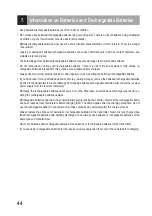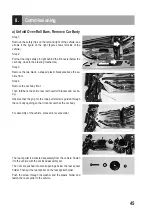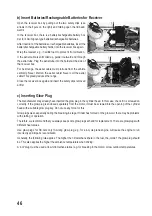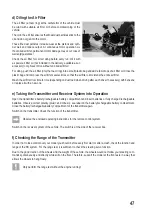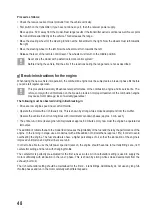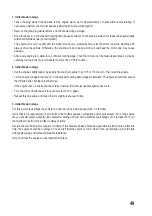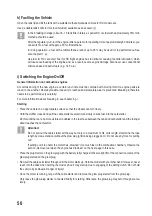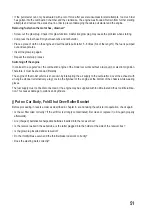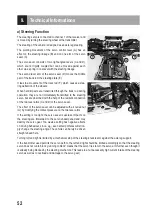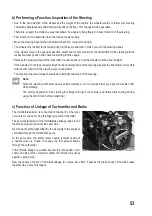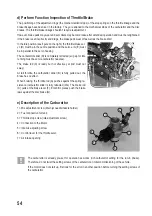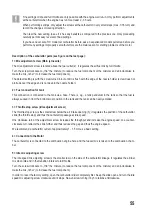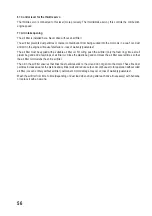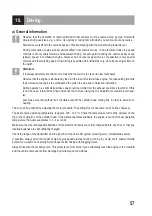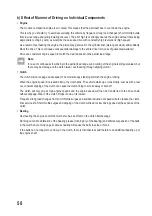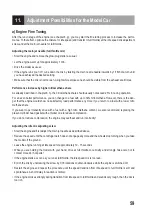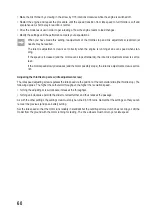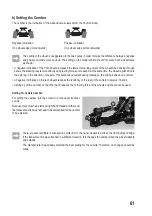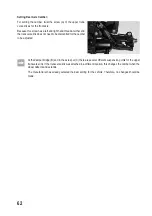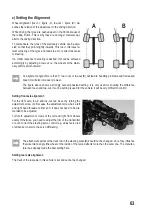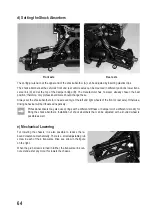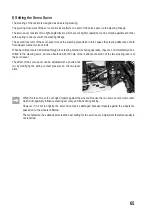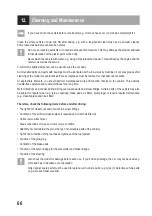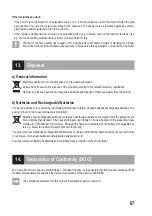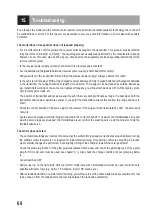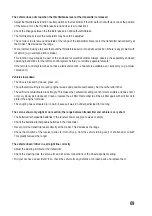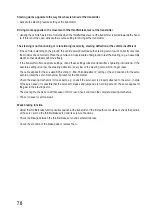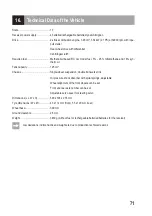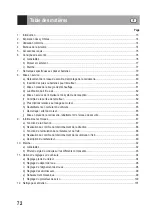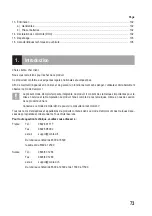
58
b) Effect of Manner of Driving on Individual Components
• Engine
The model‘s combustion engine is air cooled. This means that the airstream has to cool down the engine.
This is why you should try to avoid accelerating the vehicle by frequent, strong load changes (short throttle bursts
from low rev range and jerkily lowering the revs). The brief high revs strongly heat up the engine without there being
appropriate cooling by wind, as would be the case at a drive with constantly high revolutions (high speed).
As a result of overheating the engine, the piston may get stuck in the cylinder liner (piston gets stuck) and suddenly
block the drive. This could cause consequential damage to the entire drive train. Loss of guarantee/warranty!
Drive at a consistent engine speed to match the desired speed in the partial load range.
Note:
In case of continuous slow driving in the partial load range, wind cooling of the engine is still guaranteed, but
there may be damage on the clutch (wear, overheating through slipping clutch).
• Clutch
The clutch will not engage at idle speed. The model keeps standing still with the engine running.
When the engine speed is increased slowly, the clutch slips. The vehicle starts up or runs slowly. Just as with a real
car, constant slipping of the clutch can cause the clutch lining to smoke away or burn off.
The clutch will only grip at high engine speeds and the engine speed will then be transferred to the drive chain
without slippage. Wear of the clutch linings is now at its lowest.
Frequent strong load changes from short throttle surges and sudden reduction of speed will also reduce the clutch
liner service life. Short throttle surges and slipping of the clutch will lead to slow driving speed at the expense of the
clutch.
• Bearing
Overheating the engine and/or the clutch also has an effect on the clutch bell bearings.
Running out and resinification of the bearing grease (running dry of the bearing) and different expansion of the balls
in the clutch and running cage at excess heating will cause the balls to seize or block.
If the balls can no longer move freely in the clutch, there is frictional loss and therefore an additional heating up of
the engine shaft.
Summary of Contents for 490150
Page 142: ...142 ...
Page 143: ...143 ...

